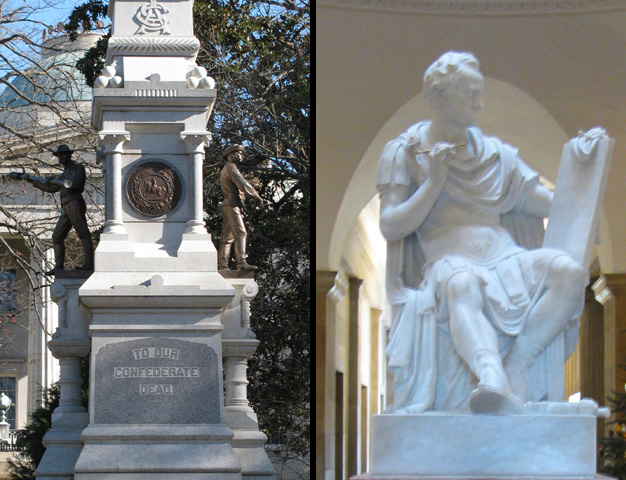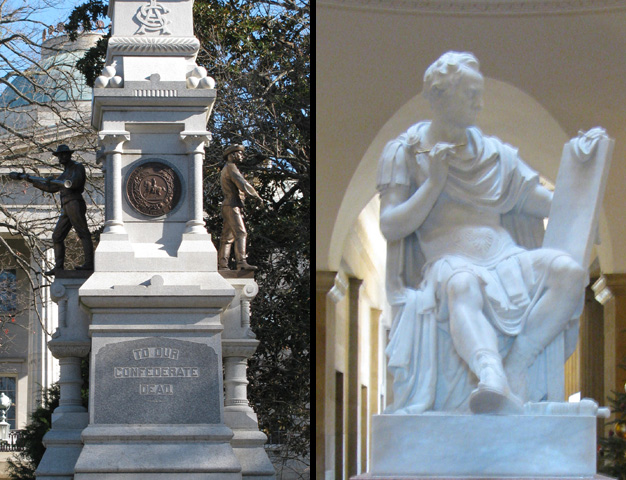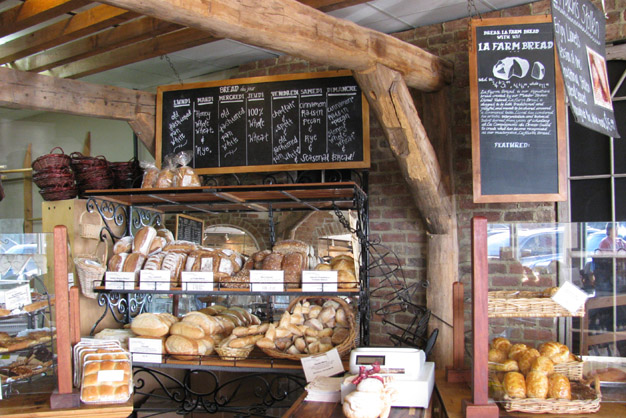
Richmond charmed me, but my sense of historical discovery and curiosity soon took a darker turn when, on the outskirts of town, a billboard showing lorazepam smiles to promote the happy church-going lives of “ex-gays” reminded me that the fear of God and denial of sex also define parts of the South.
I stopped into a gas station just over the North Carolina border in Fayetteville, the first American town named after the Marquis de Lafayette, and couldn’t take a oui without reading on a comdom distributor that “abstinence before marriage and a monogamous relationship during marriage” served as better protection than a tube of latex, nevertheless “available here for your privacy and convenience.”

In France, you’re actually more likely to get laid, not to mention elected, by practicing abstinence from God and a monogamous relationship with the local wine.
Nevertheless, south of D.C. and before you hit Florida you travel through states with identities comparable to certain regional identities in France—Burgundy or Champagne or Brittany, for example—meaning that whatever pleasures and opportunities they may provide for the visitor you’d feel quite the outsider if tried to settle down there.
I wasn’t looking to settle down though but simply to spend two days in and around Cary, North Carolina, visiting an old friend from high school and enlisting him on a tour of French bakeries or restaurants in the Raleigh-Cary-Durham area.
We had a lot of catching up to do, which I won’t bore you with here, so I’ll cut to the chase.
First we went to the old North Carolina Statehouse in Raleigh, where sculptures on the outside mourn for the Confederacy (below left) and a sculpture of George Washington on the inside (below right) serves as a cautionary tale for those who would have their democratically elected leaders sculpted by Italians.

We went hunting for French pastries and found what I have come to consider the best croissant between Newark, NJ, and Naples, FL.
It was in the town of Cary, between Raleigh and Durham, at La Farm Bakery, a busy brick, wood, and tile bakery-café with an open kitchen where even on a busy morning the service was friendly as all get-out. If it takes a bit if fear of God to get good service then maybe the French should start going to church more often.
The croissant was deliciously fresh and buttery, and it had a close rival in the flaky pain au chocolat. The breads looked look picture-perfect.

Of course one can’t judge bread simply by its appearance so I asked the woman in line behind me which one’s she’d tried and if they were good. Turns out she was Sandra A. Gutierrez, a local food writer, and she had tried them all. Her knowledgeable enthusiasm for La Farm’s bread convinced me that this picture was worth a thousand bites.
Too good to be homegrown (no offense to residents of the Raleigh-Cary-Durham area), there had to be some serious baking education behind La Farm Bakery. Indeed there is; I learned from the bakery’s website, that the man behind the quality (and success) of the place is Lionel Vatinet.
His know-how doesn’t come from the Frenchness of his name, though I suspect that helps, but from the fact that he learned and developed his skills by touring for seven years with the guild of craftsmen and artisans called Les Compagnons du Devoir, at the end of which he earn the prestigious title Master Baker.
An outsider might never feel at home in North Carolina, but he’ll always have find comfort at La Farm.
La Farm Bakery, 4248 Cary Parkway, Cary, NC. 919-657-0657.

